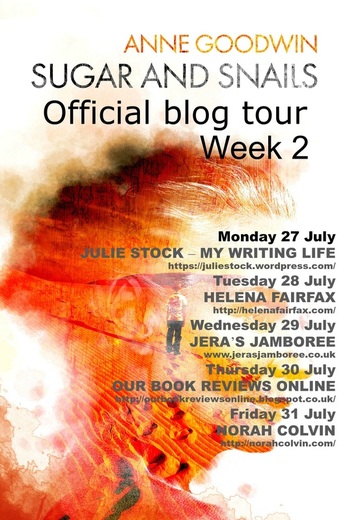
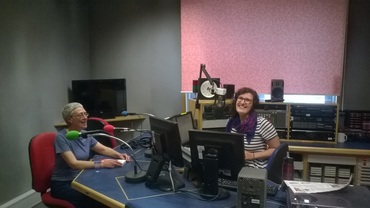
| annethology |
|
I started this blog in 2013 to share my reflections on reading, writing and psychology, along with my journey to become a published novelist. I soon graduated to about twenty book reviews a month and a weekly 99-word story. Ten years later, I've transferred my writing / publication updates to my new website but will continue here with occasional reviews and flash fiction pieces, and maybe the odd personal post.
 If I was breathless last Monday, announcing Week 1 of the Sugar and Snails blog tour, I must be on the verge of a swoon this week as I begin another round of visits. The first week has gone brilliantly (you can catch up with those first five posts via the links on my blog tour page), so how could I not be excited about the second? I start today under Julie Stock’s Author Spotlight, with a piece about setting part of my novel in Cairo. As a writer of contemporary romance from around the world, Julie has a particular interest in the challenges of setting fiction in real places, the subject of her own post on Susanna Bavin’s blog this week. Tomorrow, Helena Fairfax is interviewing me about where my own life is set, among other things. Helen lives in an interesting place herself, the UNESCO World Heritage Site and former mill town, Saltaire, which you can discover more about in her fascinating post. Then I’m off to chat with my namesake, Shaz Goodwin on Jera’s Jamboree. With her day job as a school Inclusion Lead, I was interested in her interest in novels that tackle a social barrier, as Sugar and Snails most definitely does. On Thursday, I’m on Our Book Reviews discussing the various transformations of my novel from its initial inception as a story of masculinity across three generations. This post arose out of a Twitter conversation after Mary, one half of Our Book Reviews, read and reviewed an advance copy. Obviously, I was delighted to be invited back. Finally, Friday sees me in Australia, quite fittingly discussing the theme of friendship in the novel and in its realisation (extending the theme of my previous post on gratitude) with one of my dearest blogging friends, Norah Colvin. As Norah has already hosted me once before, I know the tour bus will be safe to leave there over the weekend until I get behind the wheel again on Monday.  I’m generally not in favour of “update” posts, but I can’t ignore the perspective shift since I posted five days ago. As of last Thursday, I’m a published novelist, and enjoying it immensely. With each review (six to my knowledge so far), with each supportive tweet at #SugarandSnails, I’m claiming more of my authorial authority. I’m even infiltrating the more traditional media, with a feature on Sugar and Snails in the Lincolnshire Echo and a nerve-wracking but not too dreadful outing on BBC Radio Nottingham (my bit is at about 2.15 p.m. and the link expires in about three weeks). The highlight of the last few days was, of course, my Nottingham launch party, which I’ll be sharing more about in due course. But in the meantime, there’s this lovely and unexpected post on the event from The Mole, the other half of Our Book Reviews.
14 Comments
It’s publication week for Sugar and Snails and I’m breathless with excitement. The buzz is building with two reviews already (from Victoria Best and from Stephanie Burton) and some lovely tweets from early readers at #SugarandSnails. Now, thanks mainly to the generous response to my request for hosts, I’ve made two excursions to other blogs (firstly, to Shiny New Books to share my thoughts on writing about secrets, the false self and insecure identities; secondly to Isabel Costello’s literary sofa to discuss the pleasures of small-press publication), and my case is packed ready to depart on the blog tour proper.
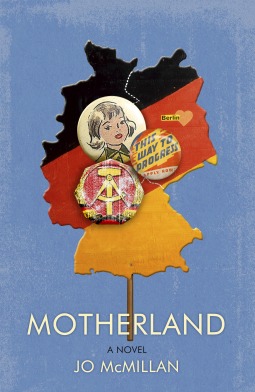 In the late 1970s, when teenage Jess’s schoolmates would be going to Benidorm for their summer holidays, she accompanies her mother to a summer course for English teachers in East Germany. They spend the other eleven months of the year attempting to interest their fellow residents of a small West Midlands town in the Morning Star, working through their TODO lists and holding branch meetings with just the two of them, cheered on by occasional news from their friends on the other side of the Iron Curtain, widower, Peter, and his daughter, Martina. With Jess’s father dead before she was even born, mother and daughter think and act as one, and Jess has no need for friends at the stuffy grammar-school where she’s marked out as an oddball. With her high ideals and youthful optimism, Jess is content to play her part in the fight against capitalism. Yet the time will come when Jess will question, not only the decisions of her own mother, but the values of the Motherland she’s dreamt of making her home. I’m sitting on Isabel Costello’s literary sofa today, sharing my experience of being published by a small independent press. So who better to keep my seat warm while I’m away than Teika Bellamy, writer, artist, publisher and founder of another small press, Mother’s Milk Books? Over to you, Teika. 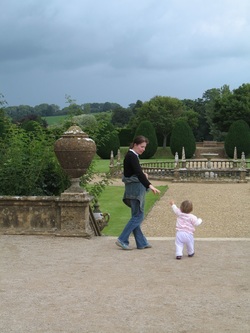 When I became a mother to my firstborn eight years ago, I found it to be a joyful, yet overwhelming time. I was inundated with conflicting advice from health professionals and received very few words of support. I can still clearly remember the sharp reply I received when I asked a nurse for a glass of water: ‘You’ve got a new baby now. You’d better get up and start looking after yourself.’ So I struggled out of bed with my newborn and, weak due to the post-partum haemorrhage and perineal tearing I’d just suffered with, I shuffled down the corridor and somehow managed to extract a cup’s worth of water out of the water cooler. (A difficult task when it requires two hands, you’re holding a baby and it feels like your groin might fall out of your body at any moment!) 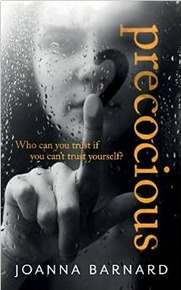 Fiona Palmer is delighted when she bumps into her former English teacher, Henry Morgan, in the supermarket. Although she’s been happily married to Dave for the last two years, she readily embarks on an affair. This is her opportunity, she thinks, to cement the bond they’d developed when she was a precocious fifteen-year-old, to bring that special relationship onto an adult level. But can an out-of-school friendship between pupil and teacher ever be innocent? What’s wrong with Fiona that she’s ready to give up on her marriage so soon? And what has become of her teenage promise as a talented writer? Why, if she was supposedly so intelligent, has she settled for a humdrum job in telesales? What can be more excruciating than contacting your favourite reviewers and writers in advance of publication to beg them, not only to read, but to like, a proof version your forthcoming novel, and declare so publicly for all the world to see? Well, quite a lot, as it happens, but please indulge a first-time novelist’s egocentrism, if you can, for the duration of this post!
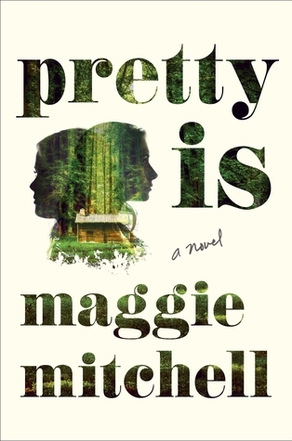 Two twelve-year-olds from separate states are abducted and kept for six weeks in a cabin in the woods. The girls are strangely compliant, fearful of what might happen but excited to be plucked from their neglectful parents and dreary lives. Spelling-bee champion, Lois, and beauty-pageant veteran, Carly-May, crave adult attention, and are thrilled to find themselves chosen, competing and cooperating for the approval of their kidnapper, the mysterious Zed. Decades later, they know they’re damaged by the experience, although unsure exactly how. Lois has become a university lecturer, specialising in nineteenth century English literature, with a secret side-line as a writer of popular fiction. Carly-May has reinvented herself as Chloe, an actor too pretty to be taken seriously, still hankering after a more intellectually challenging part. 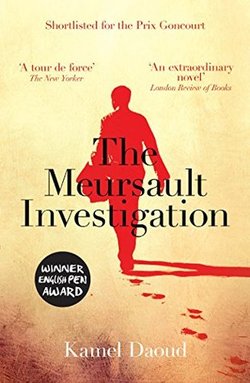 I’m featuring two award-winning short debut novels in translation, the first from Algeria and the second from Brazil, both published in the UK today, that would appeal to those who enjoy philosophical fiction. An elderly man, weary with life, sits in a bar in Oran telling a stranger how the random murder of his brother seventy years before has rendered him an outsider in his own country. Only seven when Musa was killed, his mother’s grief made her neglectful of his needs, binding him to her side and making him the object of her revenge. Spurned by his neighbours for his failure to join the resistance in the 1950s fight for Algerian independence, he’s now aghast at what his country’s become, especially the surge in religiosity (p65-66): As far as I’m concerned, religion is public transportation I never use. This God – I like travelling in his direction, on foot if necessary, but I don’t want to take an organised trip. |
entertaining fiction about identity, mental health and social justice
Annecdotal is where real life brushes up against the fictional.
Annecdotist is the blogging persona of Anne Goodwin:
reader, writer, slug-slayer, tramper of moors, recovering psychologist, struggling soprano, author of three fiction books. LATEST POSTS HERE
I don't post to a schedule, but average around ten reviews a month (see here for an alphabetical list), some linked to a weekly flash fiction, plus posts on my WIPs and published books. Your comments are welcome any time any where. Get new posts direct to your inbox ...
or click here …
Popular posts
Categories/Tags
All
Archives
March 2024
BLOGGING COMMUNITIES
|